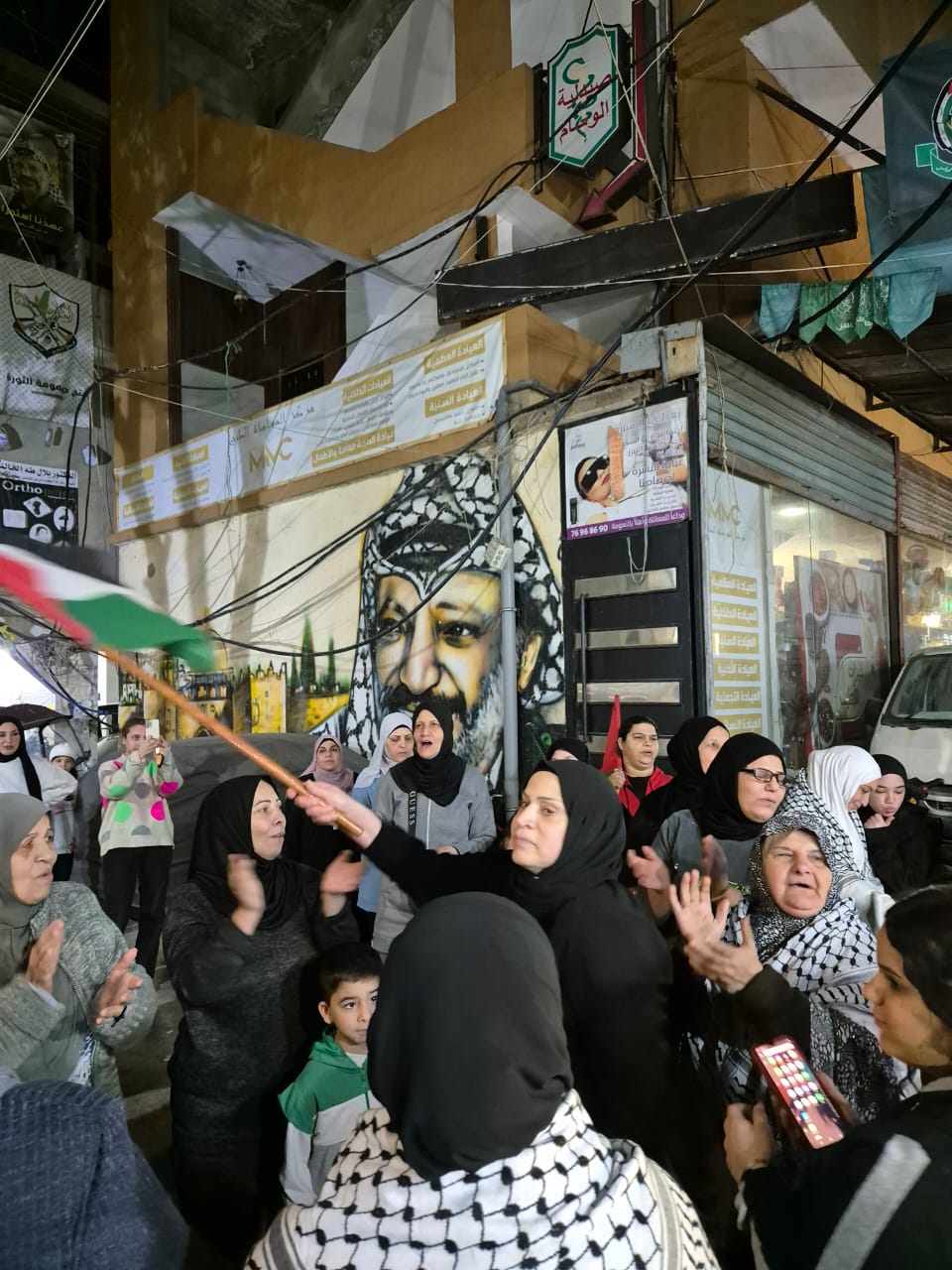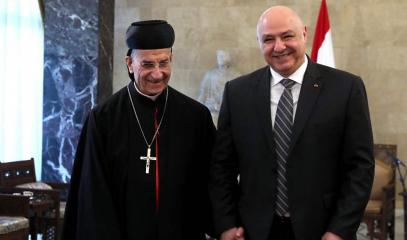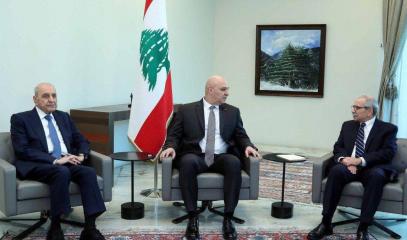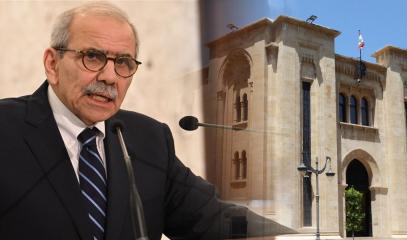Beirut's ‘new’ majority welcomes Gaza truce with relief and caution
Enthusiasm in the Palestinian refugee camps in Lebanon over the ceasefire agreement in the Strip between Israel and Hamas. Nawaf Salam, former president of the International Criminal Court, elected new prime minister. Macron expected in Beirut. The Maronite Church applauds Lebanon's adoption of the principle of ‘positive neutrality’ in foreign policy. President Aoun's first trip abroad to Saudi Arabia.
Beirut (AsiaNews) - With a mixture of ‘relief and caution’ due to fears of last minute second thoughts by Israeli Prime Minister Benjamin Netanyahu, the political upper echelons in Beirut and the ‘new majority’ that emerged from the presidential vote on January 9 welcomed the ceasefire reached yesterday in Gaza.
The official announcement came at the conclusion of tight negotiations in Doha, Qatar, and as a result of joint pressure from outgoing US Head of State Jeo Biden and successor Donald Trump, who will be sworn in on 20 January.
If the establishment of the ceasefire in the Strip ‘is a sign that a new regional order is being established’ as some claim, at the same time diplomatic circles are reminded that the underlying issue, i.e. the final establishment of a Palestinian state, remains ‘unresolved and unchanged’.
Moreover, in one of his latest statements Matthew Miller, spokesman for the State Department, spoke of a ‘utopia’ of an Israeli state for Jews only ‘in a country where seven million Israelis and five million Palestinians live side by side’.
On the Lebanese side, the announcement of the ceasefire agreement was greeted by an explosion of joy marked by machine-gun fire, festive marches through streets and squares, fireworks and the distribution of sweets.
‘This is the moment we have been waiting for for a year and a half, after a genocide and so much suffering. Victory at last!’ exclaimed a young woman from Bourj el-Brajné, a Palestinian refugee camp located on the southern outskirts of the capital, quoted by the French-speaking press.
The news of the truce in Gaza comes at a time when, after the election of former army commander Joseph Aoun as president, the ‘new majority’ dealt a further blow to Hezbollah's prestige by electing the former president of the International Criminal Court, Nawaf Salam, as prime minister by a wide margin (85 votes out of 128).
Feeling cheated, the pro-Iranian party boycotted the informal parliamentary consultations conducted by Salam immediately after his election, with a view to forming his executive.
‘Significantly weakened, Hezbollah not only lost the war, but also lost face,’ pointed out an authoritative local analyst and commentator, on condition of anonymity because he was not authorised to speak to the press.
However, in the face of protests from parliamentary blocs that do not want Hezbollah to feel ‘excluded’ from the political game, a reversal by the party is still possible.
PM-designate Salam has pledged not to proceed with the formation of the government until he has had talks with the Speaker of Parliament, Nabih Berry. This meeting will take place tomorrow, Friday 17 January.
According to the same sources, Salam is determined to apply the principle of separation of powers to the letter and excludes assigning a ministerial portfolio to a sitting MP. Moreover, while respecting the principle of Muslim-Christian parity within the government, he does not believe that the community components of his executive must necessarily be affiliated with specific political parties or formations.
Transition phase
Also tomorrow, French President Emmanuel Macron is expected in Lebanon ‘in a phase of the country's history that is one of transition’ towards a new era, according to a press release issued by the Elysée Palace on the eve of the visit.
On this occasion, the transalpine head of state will indirectly confirm the permanent commitment of the ‘quintet’ composed of the United States, France, Saudi Arabia, Egypt and Qatar to play the role of guardian angel of change in Lebanon.
In addition, Paris pledges to monitor the implementation of the ceasefire introduced in November 2024 and to strengthen the French commitment within the UN-led Unifil mission.
In recent days, President Joseph Aoun reported to the head of the US Military Command for the Middle East (Centcom), Erik Kurilla, received in Baabda, on the slowness of the Israeli withdrawal from Lebanese territory with just over 10 days to go before the 60-day deadline for its completion (27 January).
He also informed him that an ancillary dossier to the ceasefire had been completed, with the dismantling of all the military facilities of the Palestinian factions still scattered in southern Lebanon and the Bekaa. Some of these had provided military support to Hezbollah in its war in support of Hamas, which began on 8 October 2023.
Moreover, in a move to rebalance his presence in the Arab world, we have learned that the new Head of State will soon travel to Saudi Arabia, his first official trip outside Lebanon, in response to an official invitation from Crown Prince Mohammed Ben Salman.
Positive neutrality
Speaking from the presidential palace in Baabda, where he was received yesterday morning by Aoun, Maronite Patriarch Beshara Raï stressed the need to be optimistic in overcoming challenges.
‘President Aoun,’ said the cardinal, ’hopes that a government will be formed as soon as possible, without any exclusions, so that all parties can be involved in the reconstruction of the country. In his inaugural speech, the new head of state said that the ‘positive neutrality’ advocated by the primate of the Maronite Church would be the guiding principle of Lebanese foreign policy under his tenure.
31/10/2024 16:42
16/03/2018 17:29










.png)










